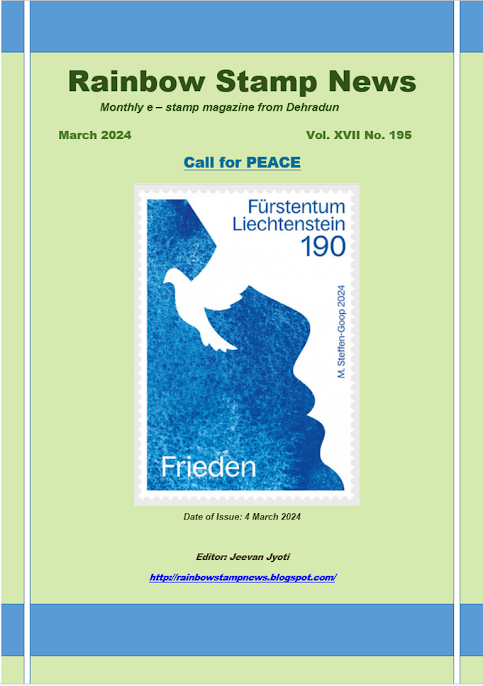
Hi ! Welcome to all of you on the onset of 2009 . As the New Year ushers it brings joy and smile to everyone. May this year bring lot of joy and happiness to all of you . A very Happy New Year to our Readers ! In today's Post a new stamp issued by Poland on 1 December 2008 to commemorate United Nations Conference on Climate Change - Poznan 2008 which was held in Poznan from 1 and 12 December 2008 organised by the Secretariat of the United Nations Framework Convention on Climate Change. The event was hosted by the Government of the Republic of Poland, and the Polish Ministry of Environment.The aim of the meeting, to which over 190 countries had sent their delegations, was among others to agree on a scheme of cooperation in the area of climate protection for the next year, to discuss the joint framework for the reduction of CO2 emissions to the atmosphere by individual countries, and to settle some financial issues related to the exchange of technologies allowing for the reduction of the emissions of greenhouse gases. On account of the climate conference in Poznan, the Polish Post issued a postage stamp presenting global climate change in a symbolic graphic representation. The FDC presents a logo of the conference. This stamp gives a message to everyone and creates awareness about the preservation of Earth's climate and its natural resources. As always the stamp, FDC and cancellation are beautifully designed . This is all for today !.... Till next Post... Have a Nice Time !

Date of Issue : 1 December 2008
Changes to the climate and its preservation
Climate change is a natural phenomenon which has occurred on our planet since its very beginnings. The changes that accompanied the industrial revolution and the technological leap are presently a cause of great concern, even though it's still difficult to precisely evaluate their actual effect. Research into global climate change has only been conducted for about 20 - 30 years, the problem of the hole in the ozone layer was discovered as late as in the 70s of the last century. Also in the 20th century the Earth's population multiplied by four, and will probably further double in the 21st century.
The occurrence of changes resulting from human activity gains in speed, and presently the main threat appears to be the increase in global temperature caused by the emission of CO2 into the atmosphere (35 billion tones per year). This may result in the meltdown of polar ice caps and flooding some of the planet's continents with oceanic waters. The above would lead to mass migration of people, extinction of numerous animal and plant species, the formation of deserts, and consequently - famine. Should it prove possible that certain actions in the economy of each country, its industry and even its households, could possibly change the situation, or at least put off some of the threats, then it's indeed worth trying. The preservation of the Earth's climate and its natural resources is not just a matter for the governments, but for each of us as well. The conference in Poznan contributed to launching the education campaign organised by the Ministry of Environment under the slogan "Change your habits for good ones, change the climate for a better one" whose aim is to make us aware that by using alternative energy sources, planting forests, saving water and electricity, segregating waste and reducing the consumption of petrol in our cars we can actually have a positive impact on out planet and the stability of its climate.
Some simple ways to preserve energy
- use energy-efficient light bulbs;
- buy home equipment which is fitted with facilities for saving energy and use it economically (e.g. do not leave the fridge doors open);
- deactivate the stand-by function which gorges energy all year round;
- turn off the tap when you wash your teeth;
- do not cook more water than you actually need - that way you'll save energy;
- recycled paper saves trees which convert CO2 into pure oxygen;
- decreasing the temperature in the home heating system by 1 degree reduces CO2 emissions by 300 kilograms a year;
- steady driving without unnecessary load, closing the windows and limiting the use of air conditioning mean smaller petrol consumption

















.png)













1 comment:
For more about climate change on stamps see my site dedicated to how global warming problem is depicted on stamps and also how the solutions also depicted on stamps (renewable energy forms, energy conservation ,recycling etc....)
www.climatechange.dreamhosters.com
with more than 300 stamps
Thanks
Panos Giannopoulos Meteorologist Greece
Post a Comment